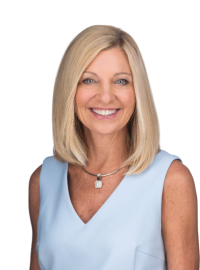Three health insurance CEOs earned spots on Fortune's annual ranking of Most Powerful Women in Business, with one topping the list for the second straight year.

Karen Lynch, chief of CVS Health, earned the No. 1 spot on the list for 2022, repeating her top ranking from 2021. She landed at No. 13 on 2020's list. Lynch became CEO of CVS in early 2021 following the retirement of longtime chief Larry Merlo, and she took on a leading role at CVS following the company's acquisition of Aetna in 2018.
"Not only does Lynch have the distinction of running the highest-ranking Fortune 500 company ever to be led by a woman, the same holds true for the Global 500, where CVS ranked No. 10 this year," Fortune said.
The news outlet also noted that Wall Street has been pleased with Lynch's performance so far, as CVS' shares are up 42% since she stepped into the CEO role.
Also in the list's top 10 is Elevance Health CEO Gail Boudreaux, who lands at No. 9. Boudreaux was ranked 7th in 2021 and No. 4 in 2020.
Fortune notes that Boudreaux lead the company, formerly Anthem, through its rebrand, which was completed in June. Elevance Health has also seen its profits climb by 33.5% over the last year, according to the report.
Centene CEO Sarah London also cracks the list for the first time, ranked 39th. London became the CEO of Centene in March as longtime chief Michael Neidorff stepped back from the company to manage his health. London has led the charge on Centene's value-creation initiative and has spearheaded a refresh of the insurers' Office of the CEO, elevating rising stars within Centene to greater responsiblity.
In a statement, AHIP, the insurance industry's key lobbying group, touted the three executives' inclusion as evidence of payers' hard work to improve health.
"The Fortune list recognizes the strong leadership and tireless efforts of AHIP members to find new and innovative ways to improve the health and financial stability of the people and communities they serve," AHIP said.